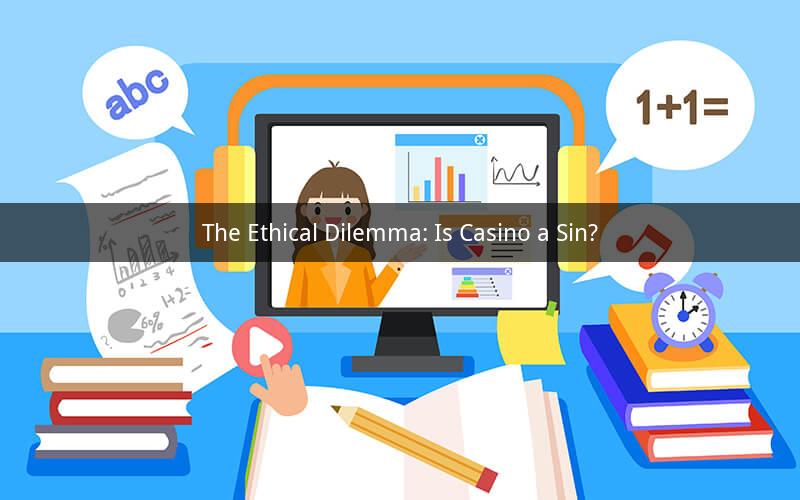
Casinos have long been a subject of controversy, with many questioning whether engaging in gambling activities is a sin. This article delves into the debate surrounding this topic, exploring various perspectives and arguments. While opinions may vary, it is crucial to understand the complexities involved in determining whether casino gambling is considered a sin.
1. Religious Perspectives
Religious beliefs play a significant role in shaping the perception of casino gambling. Different religions have varying interpretations of what constitutes a sin, and their views on gambling often reflect their core values and teachings.
a. Christianity
In Christianity, the Bible does not explicitly mention gambling as a sin. However, some Christians argue that gambling can lead to addiction and financial ruin, which may be considered a sin due to the potential harm it causes to oneself and others. The concept of "stewardship" is often cited, emphasizing the importance of responsible management of resources.
b. Islam
In Islam, gambling is strictly prohibited. The Quran explicitly states that gambling is haram (forbidden). Muslims believe that gambling leads to corruption, greed, and waste of resources. The focus on ethical behavior and the avoidance of harm to others is a central tenet of Islamic teachings.
c. Hinduism
Hinduism does not have a uniform stance on gambling. Some Hindu denominations consider gambling to be a sin due to its association with greed and materialism. However, other denominations may view gambling as a personal choice, as long as it is conducted responsibly and without causing harm to others.
2. Philosophical Perspectives
Philosophical perspectives on the sinfulness of casino gambling vary widely. Some argue that gambling is a form of entertainment, while others believe it is a moral issue.
a. Utilitarianism
Utilitarianism suggests that an action is morally right if it promotes the greatest good for the greatest number of people. From this perspective, casino gambling may not be considered a sin if it provides entertainment and economic benefits to a large number of individuals.
b. Deontological Ethics
Deontological ethics focuses on the inherent moral worth of actions, regardless of their consequences. Critics of casino gambling argue that it is inherently wrong due to its potential for harm, such as addiction and financial distress.
3. Societal Impact
The societal impact of casino gambling is a significant factor in determining its sinfulness. Some argue that casinos contribute to economic growth and job creation, while others believe they lead to social problems and addiction.
a. Economic Benefits
Casinos can generate substantial revenue for governments, which can be used to fund public services and infrastructure. They also create jobs and stimulate local economies. Proponents of casino gambling argue that the economic benefits outweigh the potential negative consequences.
b. Social Costs
Opponents of casino gambling argue that the social costs, such as addiction, crime, and financial ruin, far outweigh the economic benefits. They believe that casinos exploit vulnerable individuals and contribute to societal decay.
4. Personal Responsibility
The role of personal responsibility in casino gambling is a crucial aspect of the debate. Some argue that individuals should be held accountable for their actions, while others believe that casinos should be responsible for preventing harm to their patrons.
a. Personal Responsibility
Advocates of personal responsibility argue that individuals should make informed decisions about their gambling habits. They believe that responsible gambling education and self-exclusion programs can help mitigate the risks associated with casino gambling.
b. Casino Responsibility
Critics of casino gambling argue that casinos have a moral obligation to protect their patrons from addiction and financial harm. They believe that casinos should implement stricter regulations and provide more support for problem gamblers.
5. Conclusion
The question of whether casino gambling is a sin is complex and multifaceted. Religious, philosophical, and societal perspectives all contribute to the ongoing debate. While some argue that casino gambling is a sin due to its potential for harm, others believe that it can be a form of entertainment and economic growth, as long as it is conducted responsibly.
Questions:
1. What are the main religious arguments against casino gambling?
2. How do utilitarianism and deontological ethics influence the debate on casino gambling?
3. What are the economic benefits and social costs of casino gambling?
4. How can personal responsibility and casino responsibility help mitigate the risks associated with casino gambling?
5. What steps can be taken to promote responsible gambling in casinos?